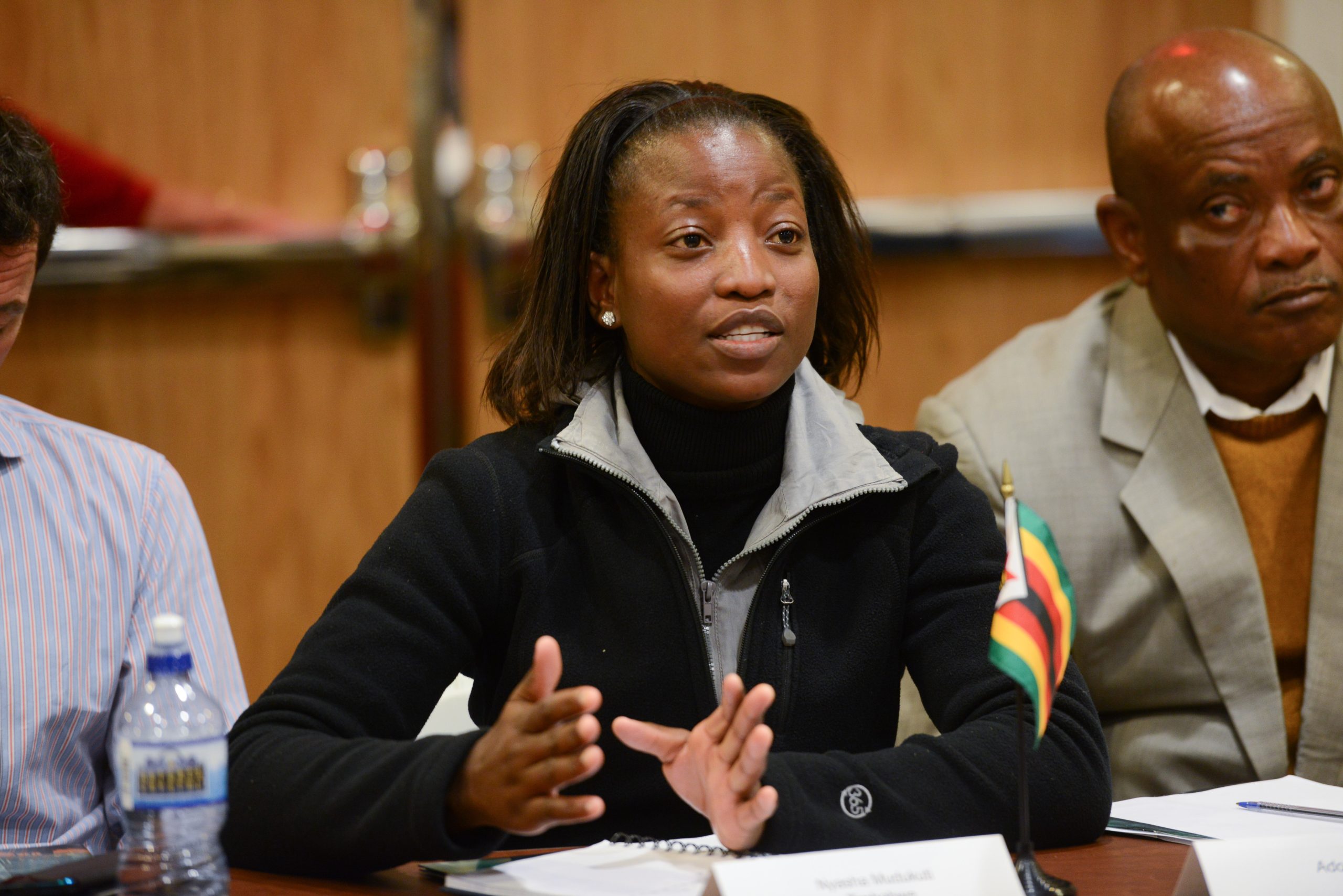I’m coming to America.
Actually, I’ve already arrived—I got here in the middle of August—and I’ve come twice before, leaving my farm in Zimbabwe and flying across the ocean to meet other farmers and share my story.
This time, however, I’m going to stay for more than a few days. I’ll take a break from growing sorghum and spend the next two years earning a master’s degree in plant breeding, genetics, and biotechnology from Michigan State University.
 My goal is to get an education that will help me improve African agriculture, presently dominated by smallholder farmers who produce about 80 percent of the food that our fellow Africans eat. In my village—it’s called Chikombedzi—women do most of the hard work in the fields, planting and weeding and harvesting to produce for themselves, their families, and maybe a little bit extra.
My goal is to get an education that will help me improve African agriculture, presently dominated by smallholder farmers who produce about 80 percent of the food that our fellow Africans eat. In my village—it’s called Chikombedzi—women do most of the hard work in the fields, planting and weeding and harvesting to produce for themselves, their families, and maybe a little bit extra.
The work is difficult—and it’s made more difficult by a lack of access to the tools and technologies that Americans and others take for granted. As a result, they earn a pittance: Less than $2 per day.
Even in my sub-Saharan village, that’s not enough to make a decent living.
My hope is to help them do better. I’m going to devote my life to this mission.
I’m blessed to have the opportunity. It began three years ago, when I joined the Global Farmer Network and visited Iowa for the World Food Prize. I met renowned scholars from prestigious institutions and became determined to discover a way to learn from them and advance my education.
After returning to Zimbabwe, I continued to participate in GFN activities and wrote a column on my country’s anti-GMO attitudes, which are so strong that not only are farmers banned from planting GMO crops but the government also has blocked the importation of GMOs from international food-aid programs that seek to alleviate suffering caused by drought.
The Wall Street Journal published the column. It caught the eye of Robin Buell, a professor of plant biology at Michigan State. She connected me with the MasterCard Foundation Scholars Program, which recognizes academic achievement and a commitment to Africa.
 So this fall, I’ll be a scholarship student in East Lansing. I’ll work in state-of-the-art labs and greenhouses as well as on farms. Maybe I’ll even have a chance to attend my first game of American football—and cheer for the Spartans in green and white.
So this fall, I’ll be a scholarship student in East Lansing. I’ll work in state-of-the-art labs and greenhouses as well as on farms. Maybe I’ll even have a chance to attend my first game of American football—and cheer for the Spartans in green and white.
But my mind will remain fixed on Zimbabwe. My goal is to gain as much knowledge and experience as I can, then go back and find a job as a research scientist who brings innovation to the agriculture sector of my country and my continent.
We desperately need it. Africa has an enormous amount of arable land, and yet we trail the world in food production. As our population grows, we must do more to feed ourselves—and we have to do it amid the challenges of climate change, which makes farming more unpredictable than ever.
Some of our needs are obvious. We must convince banks that small farms are worthy investments than can provide a proper return. We must improve our infrastructure, making it easier to bring food to market. We must persuade young people that agriculture offers a promising future.
Much of this starts with technology—and giving our farmers access to the seeds and equipment that have revolutionized agriculture around the world.
We’re already so close to being able to do so much good.
Last year, I visited Uganda, which is north of Zimbabwe. The equator runs through it.
I met families who struggled to feed themselves. This was nothing new: I see it in Zimbabwe all the time. In the case of Uganda, however, the problem has a specific source: a virus that attacks the cassava crop. About half a billion people, mostly in developing countries, depend on it as a staple food.
 The bad news is that the brown streak disease, as it’s called, devastates Ugandan farmers. The good news is that science offers a solution, through GMO technology that produces a disease-resistant plant.
The bad news is that the brown streak disease, as it’s called, devastates Ugandan farmers. The good news is that science offers a solution, through GMO technology that produces a disease-resistant plant.
To do this, we must master the science to defeat the disease and then we must overcome the ignorance that leads to misunderstanding and doubt.
I plan to do my part—and it starts right now, as the new school year begins.


In French here:
http://seppi.over-blog.com/2017/09/aller-en-amerique-pour-soutenir-l-afrique.html
Work hard and good luck, Niasha!